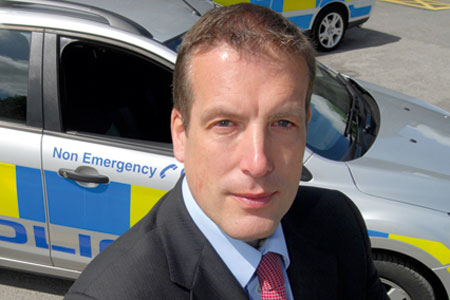There will be some parallels in supplying a police fleet with vehicles and services with other organisations operating cars and vans.
But there will also be a number of specialised requirements that lead to different processes for providers compared with other fleets.
Procurement of vehicles for police forces is set out at a national level with a framework agreement.
Vehicle manfacturers bid to be included in the agreement and are included with a bias towards their suitability for the job.
Most police vehicles will be purchased outright as volume is used to leverage worthwhile discounts from manufacturers.
SMR work is invariably carried out in-house. Some vehicle manufacturers provide ‘off-the-peg’ conversions, while other vehicles are sent to specialist companies to carry out modifications.
Vehicles will work on a police fleet for up to 150,000 miles, so it’s in this sector of the fleet market, perhaps more than any other, that fit-for-purpose is critical.
“It is a long, complicated process. It now comes down to a pure commercial case rather than before when police officers could select vehicles,” says Andrew Buxton, national operations manager at BMW.
Police vehicles are varied as they are expected to perform well and support officers in a wide range of roles – from traffic cars to forensic collision investigation and training to armed response, covert vehicles and unmarked general fleet cars.
All have different vehicle requirements.
But while manufacturers might have to work hard to win a place on the framework agreement, the visibility provided with such high-profile use can be an advantage in winning other business.
Joined-up approach
Forces often join together regionally to invite tenders, which guarantees volume to the vehicle manufacturer and a lower cost for the police.
“Regionally we will set up a mini list that will go out to tender, because as we can guarantee volume to a manufacturer as regions, which usually incorporate six or seven forces, we can get a discount,” says Richard Flint, transport manager at North Yorkshire police.
“We are working towards more standardised vehicles and standardised equipment so we reduce our costs and we get better value, a more joined-up approach.”
Flint says for the police fleet manager it is about balancing risk against cost and buying the right vehicle to do the right job at the right price.
Manufacturers under pressure
Manufacturers are under increasing pressure to not only produce vehicles that fit within the new framework, but to provide a specialist service which can sometimes involve rebuilding the vehicles themselves.
“Our business is not just about buying a car and servicing and maintaining it. We do things with the vehicle which are probably outside the manufacturer’s usual expectation,” says John Gorton, head of transport for Essex and Kent police.
“We break, bend and cause pro-blems for vehicles that manufacturers would not be expecting. Working the vehicles as hard as we do means the manufacturer can put things in place to repair which may later come up in domestic use.
"We are like a test bench for manufacturers.”
He adds: “It’s not about getting the cheapest fleet possible, it’s about maximising the effectiveness of how the fleet is used.”
As well as providing the right vehicle for the job, fleet managers are also looking for a dedicated aftersales service and suitable warranties.
“The market has really changed over the past few years, it is price driven and all about the full package. We are working towards offering them the best packages possible,” says Jane Barker, supply manager – emergency services at the Volkswagen Group.
Vehicle Conversion and Technology
Although many manufacturers will offer a ‘one-stop shop’ for the police fleets to convert the vehicles, many fleets will go out to tender again for suppliers and conversion specialists for everything from livery to radio technology.
Nic Richell, technical sales manager at SVP, a leading conversion company, believes a close relationship with the police fleet managers is key to successful conversions.
“We have worked with the police for some time and know their requirements.
"We will go out and speak to the drivers and fleet managers and find out what they need the vehicle to do and see how we can fit these requirements,” says Richell.
“Every police force is different, they have different requirements for different areas.”
















Login to comment
Comments
No comments have been made yet.